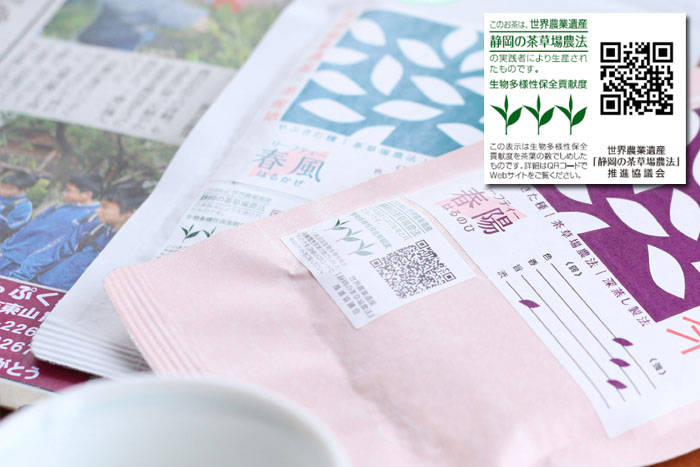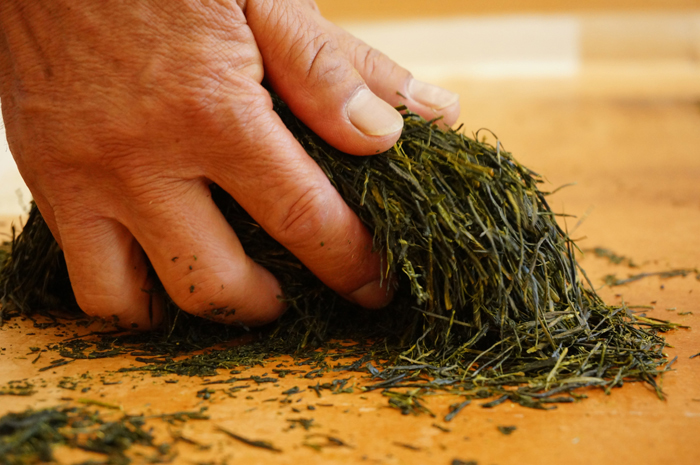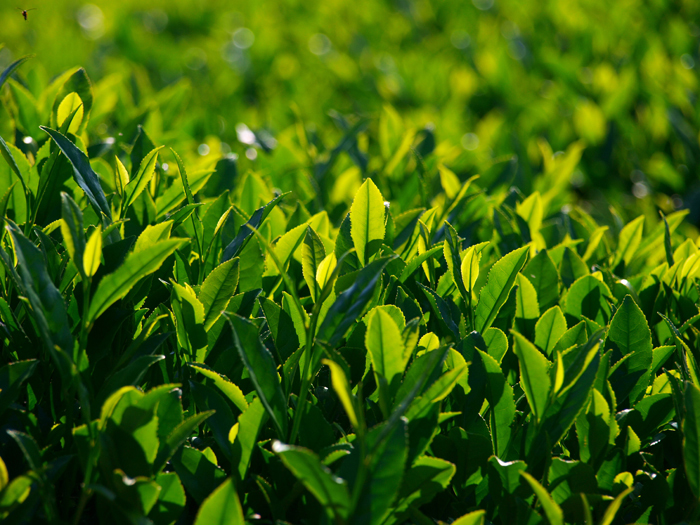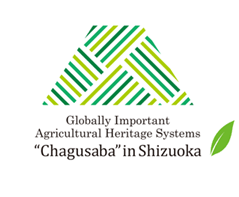

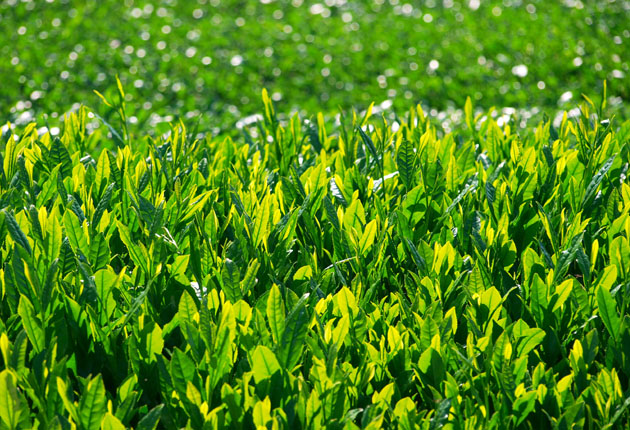
3 Ways to Enjoy Chagusaba
See
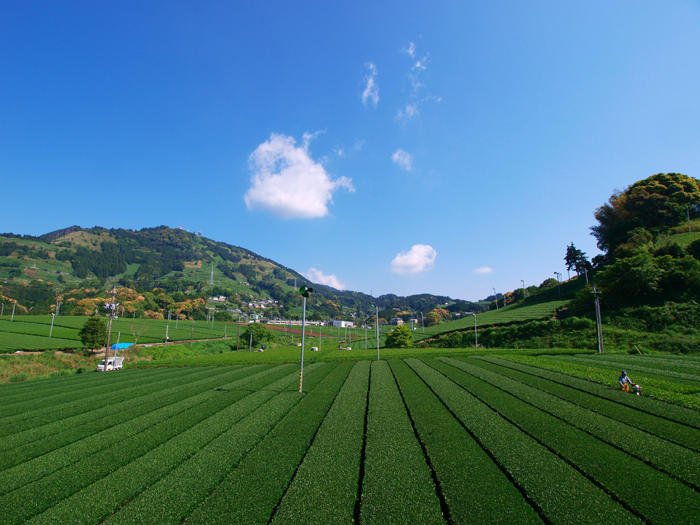
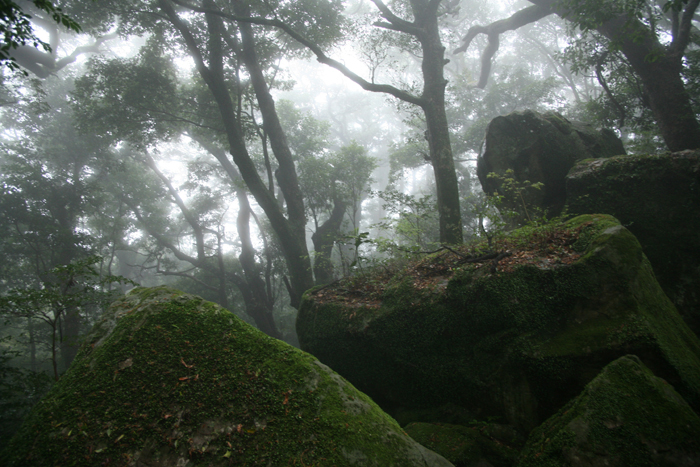
First, come and see Shizuoka’s vast tea fields first-hand. Stand in the magnificent fields of tea under a boundless, blue sky, and feel the breeze from the surrounding mountains against your skin. On Mt. Awagatake, a mountain in the eastern part of Kakegawa City, trees have been planted in the shape of the character for tea (cha). About 130 meters wide, it has become a symbol of the area. And on the top of the mountain, there is a Shinto shrine and a mystical forest where, according to legend, gods are said to have descended to earth.
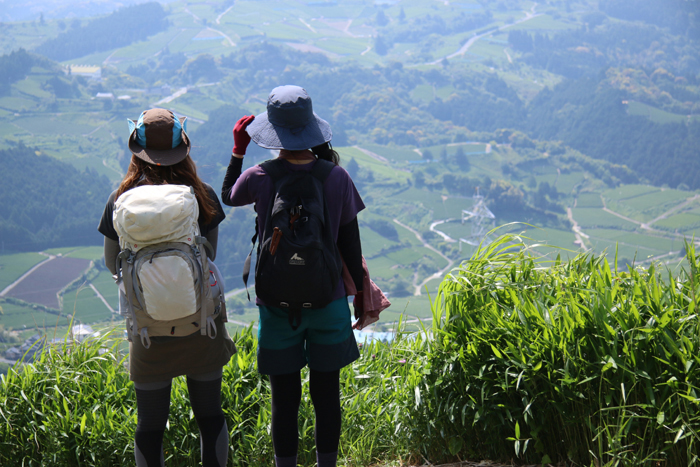
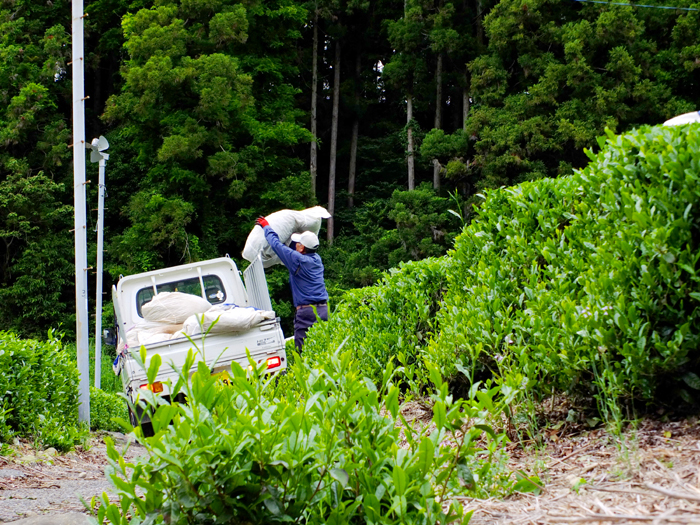
After taking in the vast tea fields, turn your eyes toward the people that live and work here—the growers who diligently work in the tea fields, committed to making the best tasting tea with traditional agricultural practices passed down from generation to generation. Pictured above is a k-truck—distinctive Japanese mini trucks with excellent maneuverability—a common sight on the steep and narrow roads in the fields.
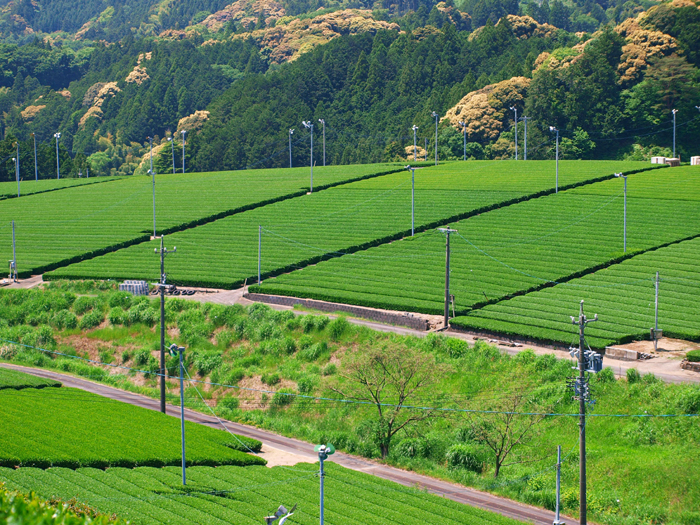
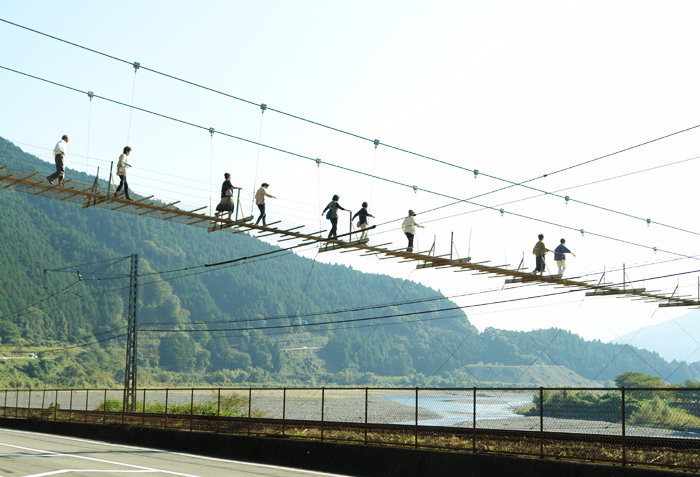
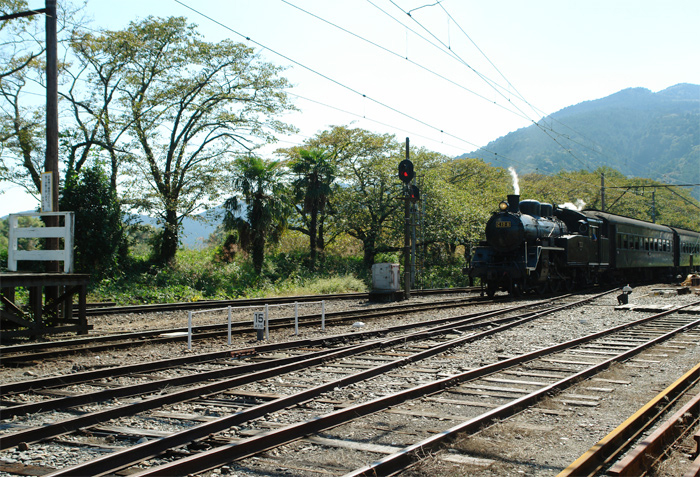
Shizuoka boasts a number of famed tea plantations that have repeatedly won top prizes in national competitions. Just seeing them will leave you filled with amazement. There are many places in the plantations that provide great views of the tea fields and other interesting sights as well. For example, watching the Oigawa Railway steam locomotive passing through the tea fields is popular with photography enthusiasts.
Do
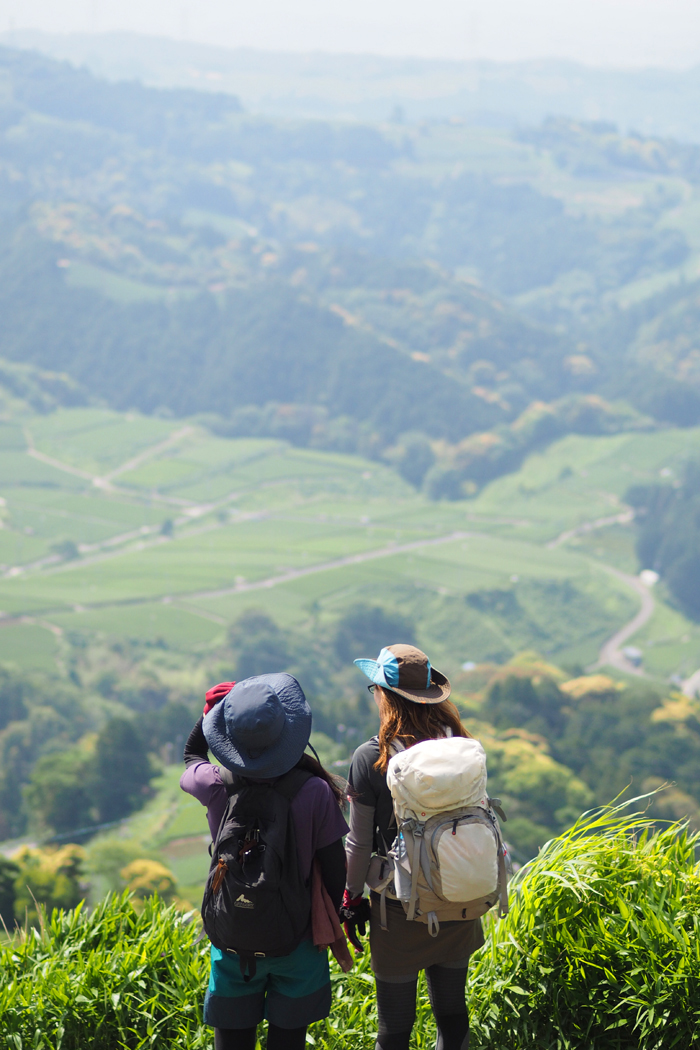
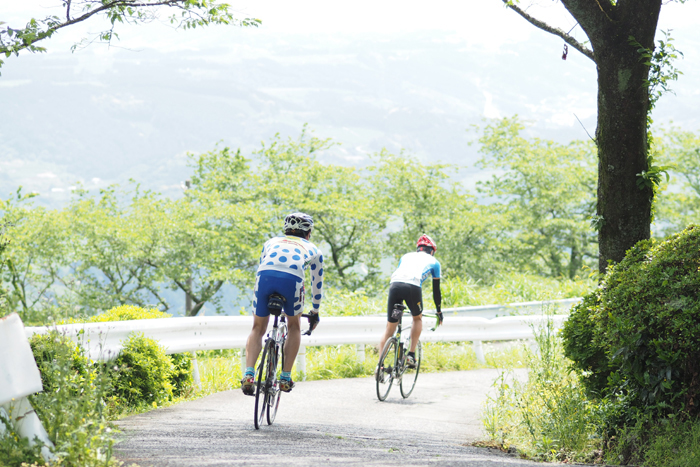
The scenic view of the tea fields is popular with hikers and cyclists. Shizuoka has one of the mildest climates in Japan, and is well known for its high number of sunny days. One of the best parts about walking through the tea fields is the feeling of openness. Taking a walk or bike ride through the lush green fields under a blue sky is truly incredible.
Take in the beautiful view, listen to and feel the breeze, and smell the fragrance of the flowers—experience the tea fields with all five senses.
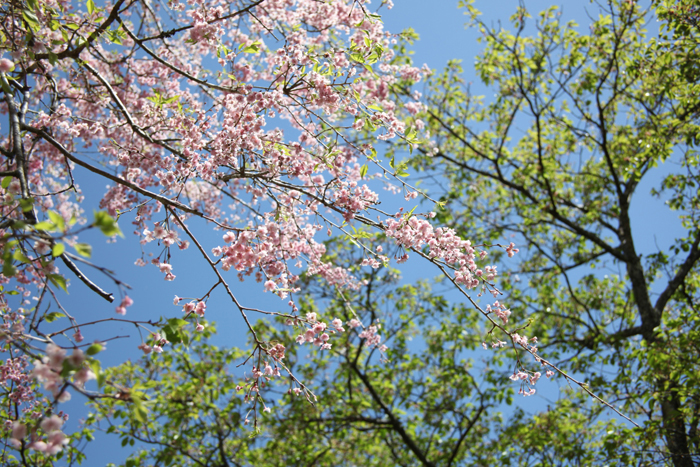
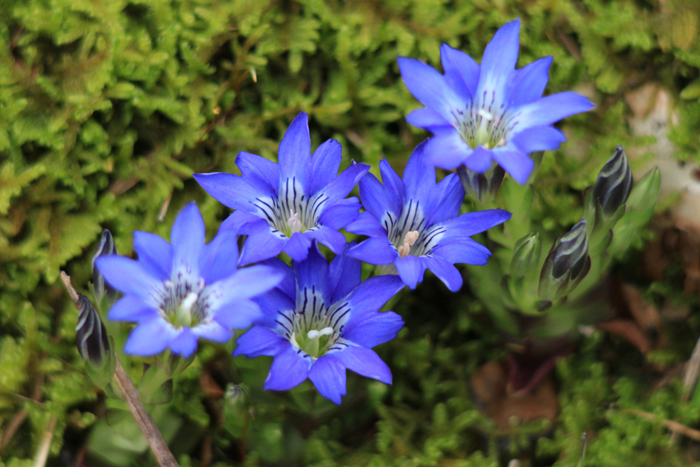
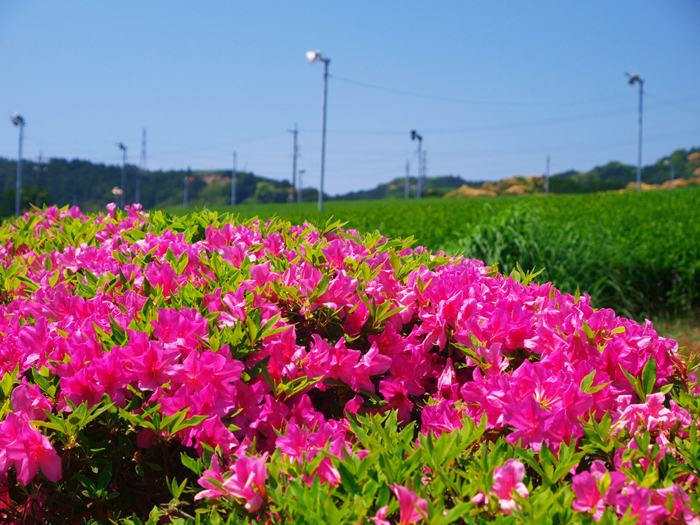
From mountain scenery that changes from season to season, to the incredible variety of colorful flowers found throughout the country, Japan is overflowing with picturesque scenery.
Chagusaba areas are brimming with life. You can see Kakegawa Melanoplinae, a species of grasshopper unique to chagusaba, many rare species of flowers, and over 300 species of grassland plants, including endangered species like balloon flowers (Platycodon grandiflorus) and golden orchids (Cephalanthera falcata). The reason why such a diverse range of species lives here is due to the GIAHS-designated Traditional Tea-grass Integrated System. Usually grass and weeds are cleared before the rainy season starts, when they grow tall. However, in chagusaba areas this is carried out in the autumn when the flowers that bloomed in the summer drop their seeds. When the spring comes, sunlight reaches the soil where the grass was cleared, and soon new shoots sprout. In this way biodiversity has been maintained in the environment since ancient times, and today these areas are recognized for their scientific value and often researched by scientists.
Drink & Buy
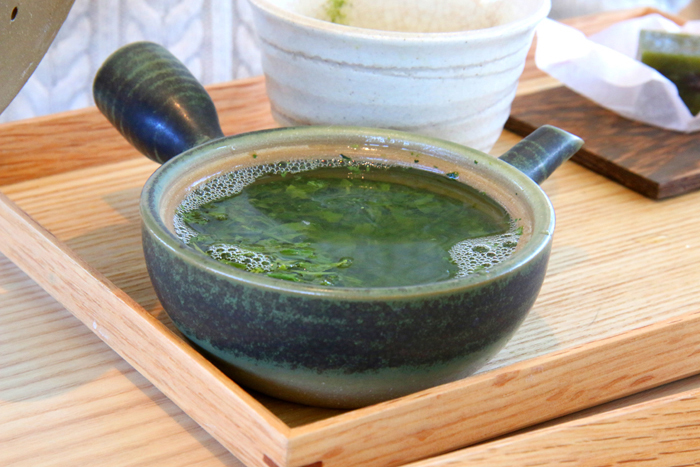
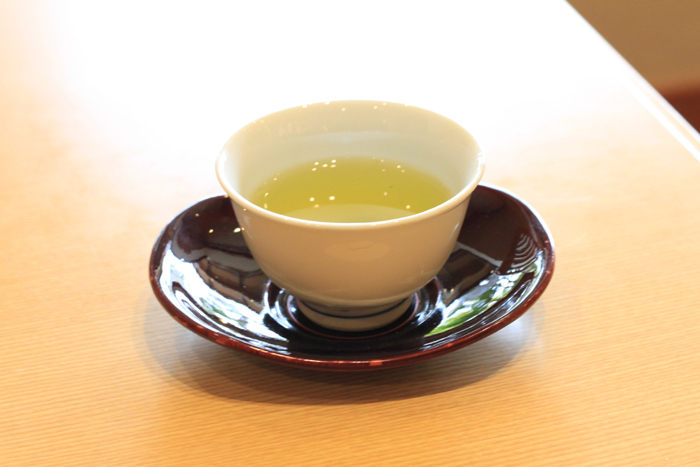
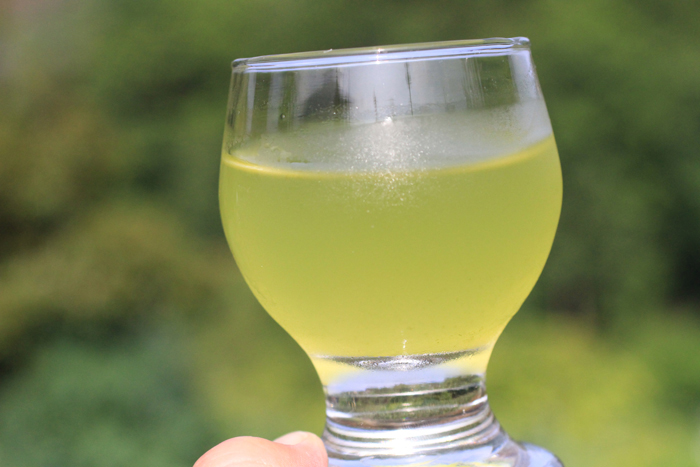
Selected as a Globally Important Agricultural Heritage Systems site, Shizuoka’s Traditional Tea-grass Integrated System is a farming practice in which cut grass is spread on the furrows of tea fields, resulting in richly aromatic tea. The quality and flavor of sencha green tea made with this method is unforgettable. Arguably the best in the country, it’s a must-buy if you come to Japan. And because it stays fresh for a long time after taking it home, it is a very popular souvenir.
The price of loose leaf sencha varies depending on the quality. One hundred grams of high-grade sencha can range anywhere from several hundred to over 2,000 yen. But since Shizuoka tea is among the best in the world, you can rest assured that even the inexpensive ones will be delicious.
Come to Shizuoka, and try this richly aromatic, authentic Japanese green tea first-hand. And when you buy Shizuoka sencha, make sure it has this symbol (pictured below), which certifies that it has been produced with the Traditional Tea-grass Integrated System.
